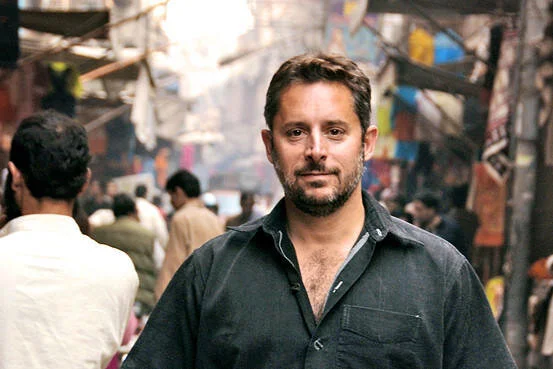Ryszard Kapuściński: Roadslides
The Paris Review
In the Fall of 2002, I made a plan with Ryszard Kapuściński to begin a Paris Review interview. In the intervening years he and I kept trying to meet over a tape recorder in Warsaw, but the time was never right. In January, when I learned of his death, I discovered that I had jotted down a few notes from our only meeting…
AUDIO: Susan Meiselas and Elizabeth Rubin in Conversation
Twenty Summers
Twenty Summers was founded to restore the Hawthorne Barn in Provincetown, promote the creation of art and provide opportunities for the public to engage with art and artists. In cooperation with Twenty Summers, WCAI brings you the first of several conversations recorded at the Hawthorne Barn. The opening night of Season Six brought together two esteemed newswomen, photojournalist Susan Meiselas and writer Elizabeth Rubin.
Lynsey Addario at War
Aperture Magazine
Lynsey knocked on my hotel-room door. It was early and I was sleeping. This was in Tehran and we didn’t know each other. She came in, put down her stuff, and started right in — her luggage was lost, we had to leave that day for the Iranian border with Kurdish Iraq, did I have the number for the Ministry of Culture guy (basically our minder). It was winter 2003 and we would be covering the imminent U.S. attack on Iraq and she was breathless.
Daniyal Mueenuddin: Stranded gentry
Bidoun
Daniyal Mueenuddin lives and works on a farm in Punjab, and it’s done wonders for his writing. While headlines warn of Pakistan’s imminent implosion, Mueenuddin, the son of a Pakistani father and American mother, has carved out an idyllic life for himself, writing in the mornings and overseeing the planting and harvesting of mangoes, sugarcane, wheat, and cotton in the afternoons. I met Mueenuddin at the Pink Pony Café in Manhattan.
Jill Magid: Love letters to the Liverpool police
Bidoun
One afternoon, Jill Magid, small, pale, black-haired, walked into the headquarters of the Amsterdam police and offered them a project. She told them she wanted to do an art piece about their surveillance cameras. The Dutch policeman at the front desk was unimpressed. He passed her off to someone on the phone. “We don’t work with artists; we’re a police station,” he said, and that might have been that — for someone other than Magid.
‘Only You Can Save Your Sons’
The New York Times Magazine
On a hot night last August in a small Russian town on the banks of the Volga River, Yelena Arefieva heard a knocking and someone crying: Mama. Mama. Mama. ''I jumped like a cat to the door,'' she said, but there were only mosquitoes buzzing in the stairwell, for the cries were in her dreams. A few days later, Yelena received a letter from a young police investigator just back from serving three months in Chechnya. It was about her son, Denis, a 19-year-old junior sergeant with an artillery unit who had been sent to Chechnya in June.
School for Survival: Just how vulnerable is a reporter covering a war?
Annals of Journalism - The New Yorker
One cold and drizzly afternoon last fall, I was riding with a group of BBC journalists through a stretch of leafy woodlands, when our driver suddenly hit the breaks. A red car was parked across the road, blocking our way…
Editor in Exile
Balkan Journal - The New Yorker
Can a radical newspaper become the blueprint for an independent Kosovo?
Letter from Uganda: Our Children Are Killing Us
The New Yorker
Shortly after midnight on October 10, 1996, the girls of St. Mary’s, an elite boarding school run by Italian Catholic missionaries near the town of Aboke, in the Lango region on northern Uganda, were awakened by the sounds of shattering glass, clomping boots, and gunshots.
An Army of One's Own: In Africa, nations hire a corporation to wage war
Harper’s Magazine
Eeben Barlow lives and works on a quiet, tree-lined side street in a wealthy suburb of Pretoria, the city that was once the headquarters of South Africa’s apartheid military establishment…











